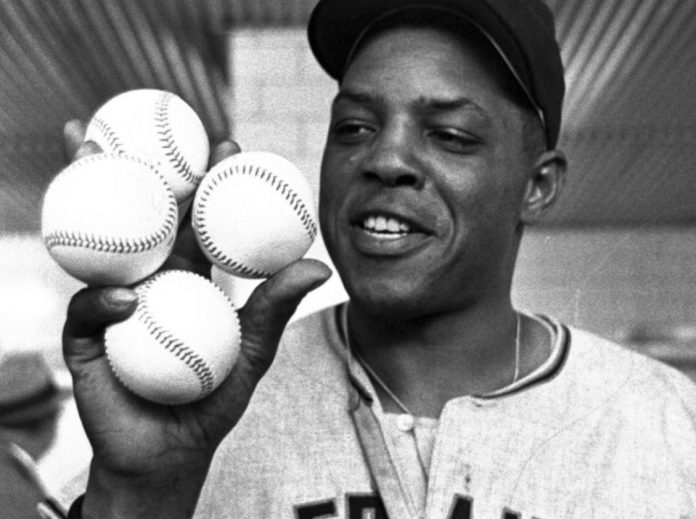Baseball playing legend Willie Mays passed away on June 18th, 2024 at the age of 93. The Alabama native began his career in the Negro leagues with the Birmingham Black Barons in 1948 and embarked on an illustrious 25 year career that featured various record breaking catches and home runs.
Writer Richard Goldstein, in hi 2024 article for The New York Times, “Willie Mays, Baseball’s Electrifying Player of Power and Grace, Is Dead at 93”, writes, “Mays compiled extraordinary statistics in 22 National League seasons with the Giants in New York and San Francisco and a brief return to New York with the Mets, preceded by a time in the Negro leagues, from 1948-50. He hit 660 career home runs and had 3,293 hits and a .301 career batting average.”
In the same vein of fellow Baseball playing legends such as Lou Gehrig, Babe Ruth, Satchel Paige, and Jackie Robinson, Mays helped transform the game of baseball into the cornerstone of American popular culture it is today, especially that of African American athletes. His agility and powerful arm caught the attention of various team managers, starting with the San Francisco Giants, winning Rookie of The Year in 1950.
Writer Christian Isidore, in his 2024 article for CNN, “Why Willie Mays, not Babe Ruth, Was Baseball’s Greatest Player”, writes, “There is a term in baseball to describe Mays’ rare kind of greatness — “a five-tool player,” one who can hit for average, hit for power, field, throw and run… Mays is also the only player with more than 300 home runs, 300 stolen bases, 3,000 hits and a lifetime .300 batting average — all milestone marks in the sport.”
Let it not be forgotten during the 1954 World Series, Mays introduced what has become known as “The Catch”, an over the shoulder catch that has become synonymous with a touchdown and a slam dunk.Writer Kevin Blackistone, in his 2024 article for The Washington Post, writes, “69 years, eight months and counting since Mays made the Catch, it remains a part of our collective sports psyche. It is not just etched in the memories of those who may have witnessed it at the time but has become embedded in the minds of fans who didn’t — and transcended the game’s lines as well.”
The legacy of WIllie Mays can be looked at in a myriad of ways. He blazed a trail that has influenced players such as Derek Jeter, Carl Crawford, and Barry Bonds. But his legacy is more than just throwing and catching a ball. The representation he helped usher in redefined the work ethic and possibilities for an African American baseball player.








